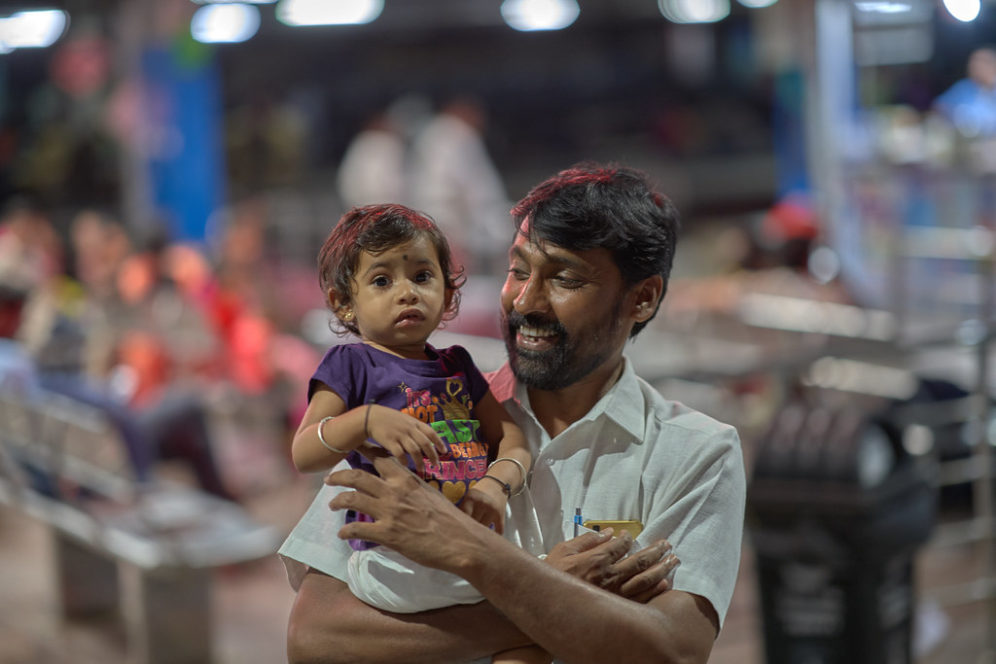
January 13, 2020
Pune’s Vision for Streets Puts Children First
While Pune received the 2020 Sustainable Transport Award for its expansion of pedestrian infrastructure, its focus on designing for children can transform the city and its space that will benefit everyone.
This year, the city of Pune, India received the 2020 Sustainable Transport Award for its work on improved pedestrian infrastructure through complete streets, by dedicating over 50% of its municipal transportation budget to sustainable modes: walking, cycling, and bus infrastructure, and improving its BRT. Pune is a rapidly developing Indian city of over 3.5 million people located in the northwest state of Maharashtra, a few hours from Mumbai. It has a robust economy, is home to several universities, and is ranked high for livability.
Pune is also on the vanguard in India for centering its street design around pedestrians, particularly children and their caregivers. The ITDP India Program, with the support of the Bernard van Leer Foundation (BvLF), initiated work with the Pune Municipal Corporation (PMC) in a program entitled, “Transforming Urban Mobility to Nurture Early Childhood Development in India’. The initiative was officially launched in Pune in December 2019.
“Are our cities designed for children?”
This is an easy question to answer. Streets are designed as corridors for motor vehicles and very rarely even have safe walking space for adults, let alone children. People have to compete with cars and two-wheelers for space to move through the cities. Very little infrastructure is designed to prioritize or keep safe young children.
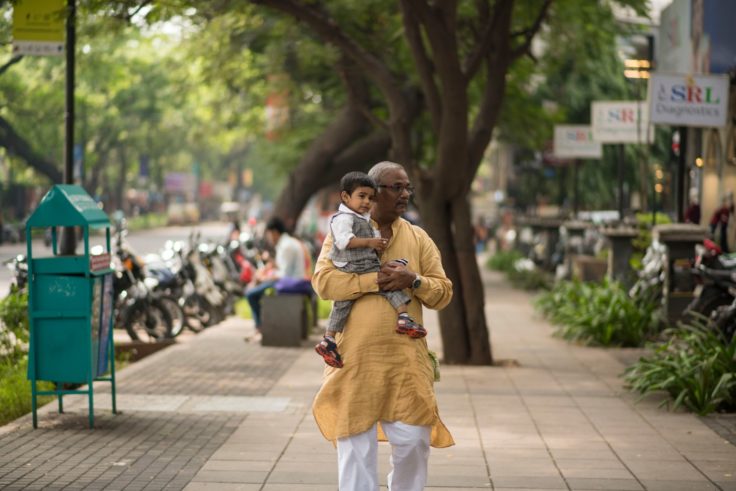
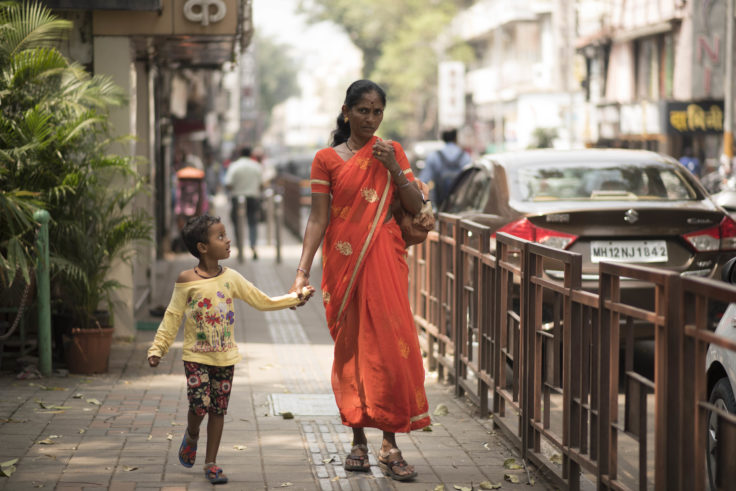
Designing for children with their limited range of travel and slower pace, can create beneficial infrastructure for other vulnerable groups like the elderly and disabled. A Child-Friendly City is one that puts the needs of children before those of vehicles and in doing so, benefits many other urban residents. For instance, pedestrian islands, which give children more time to cross the street at their slower walking pace, also benefit anyone else who may walk slower, like people carrying many items or the elderly. Children are disproportionately affected by pollution and particulate matter, caused by vehicle emissions so making cities car-free or taking more cars off of the streets, can improve air quality for everyone including children. Child friendly infrastructure is increasingly a focal point of design but this practice has not extended yet to many parts of India which makes Pune’s investment that much more notable.
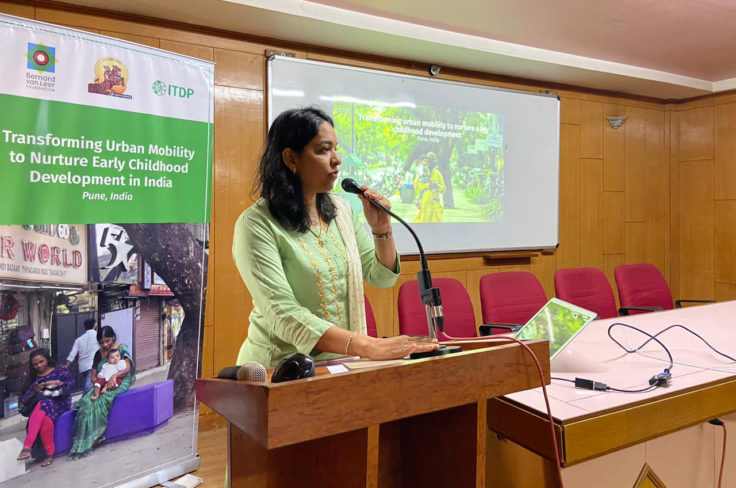
If designing for children is an easily agreed to, the way to do so is more complicated. This question was the topic at the launch commemorating the new initiative in Pune, supported by BvLF’s global Urban95 initiative. At the launch, Rubal Agarwal, Additional Commissioner of the PMC explained the significance, “Pune is a pioneering city in many ways and we welcome initiatives such as Urban95 to transform urban areas and make them children and caregivers-friendly.” These initiatives include tactical urbanism interventions and walk smart and cycling master policies.
Speaking at the launch, Shreya Gadepalli, South Asia Programme Lead, ITDP, presented the vision for the city and the initiative, “In India and across many fast-developing countries, the ever-increasing investments are not focused enough on incorporating the needs of infants, toddlers, and caregivers. Under this program and with BvLF’s support, we hope that cities like Pune become lighthouses for other cities in Maharashtra and the country to incorporate the needs of young children and families in their mobility policies, plans, and projects.”
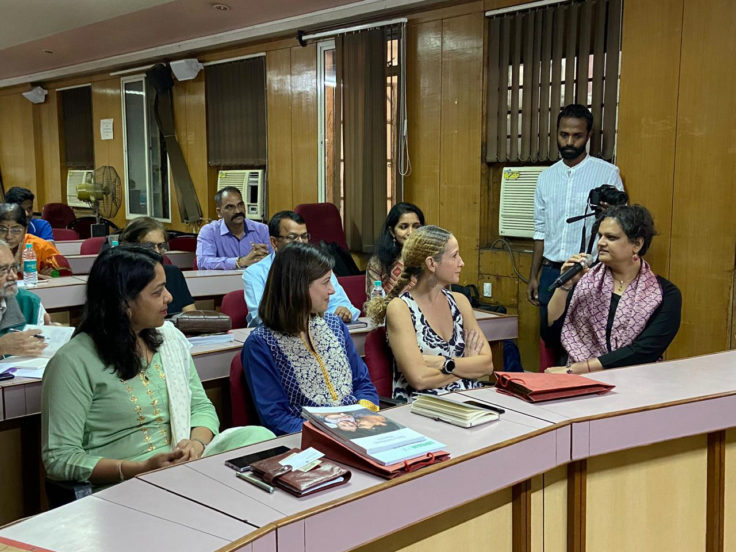
The event was attended by government officials from the Roads and Family Planning Departments. Representatives from local organizations such as MASHAL, Centre for Environment Education, Parisar, Prasanna Desai Architects, and Shelter Associates suggested various ways for Pune to become a child-friendly city.
Mobility policies that focus on infants, toddlers, and caregivers specific interventions and improvements dedicated for early childhood development to increase safety, convenience, and vibrancy of public spaces, and improve access to childhood services such as health care, education, and play.
With several developments to make the city more inclusive, Pune is already on its way to becoming a “City for all”. Highlighting the work done in Pune, Dinkar Gojare said, “The PMC has already adopted the Urban Street Design Guidelines, a “Pedestrian First” policy, and implemented several road safety improvement projects. 100 km of street redesign is already on its way. Open spaces are available but they are misused. We should begin with freeing up about 25% of them for projects that ensure early childhood development.”
While Pune still has a ways to go to meet their goals, prioritizing children will help the city to further prioritize pedestrian safety and benefit Pune residents for decades to come. This initiative is well timed with the MOBILIZE Summit taking place in Pune in June, 2020. With a clear vision and the people’s support, Pune is building a future where cities are designed for children, and for all.
